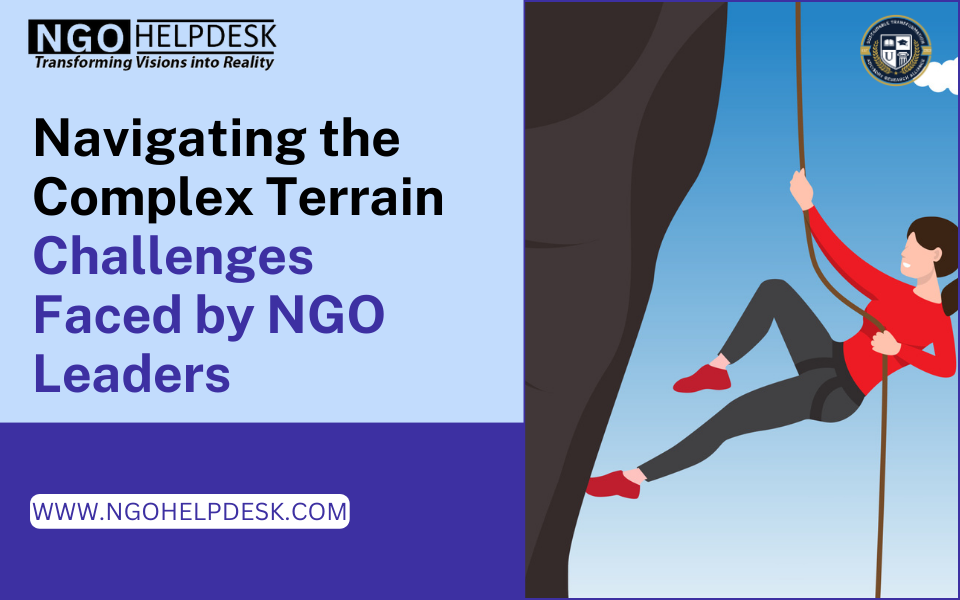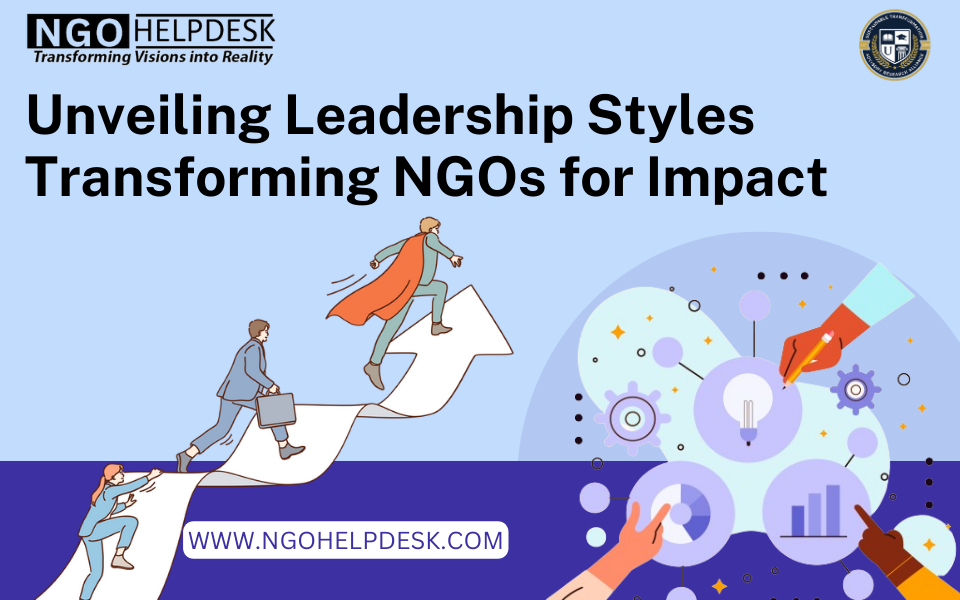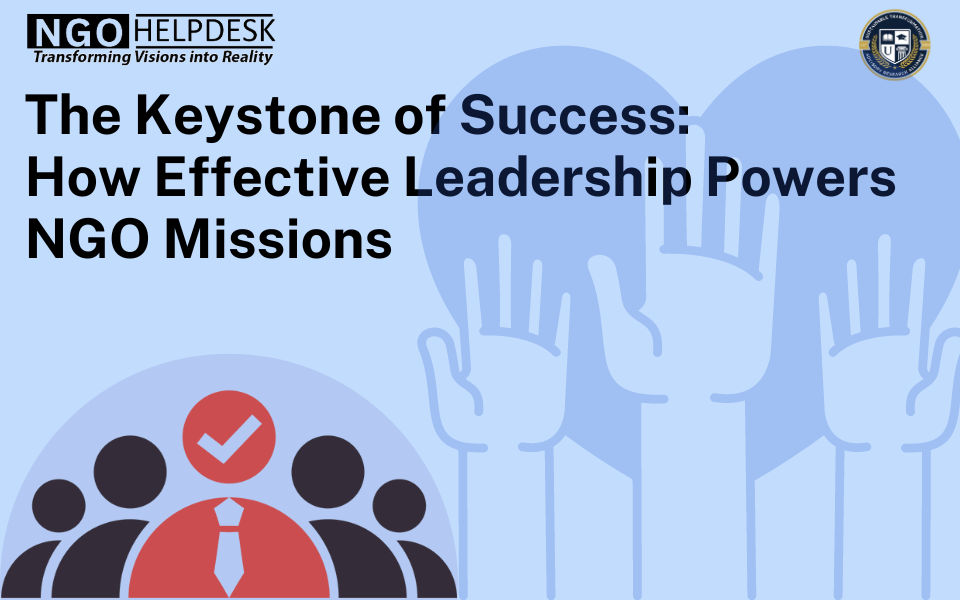
Introduction:
Leading a non-profit organization (NGO) comes with a unique set of challenges that test the resilience, creativity, and leadership acumen of those at the helm. As society increasingly looks to NGOs for solutions to some of the world’s most pressing issues, the role of NGO leaders becomes ever more critical. This blog explores the multifaceted challenges NGO leaders face and offers insights into navigating these obstacles effectively.
1. Resource Constraints: A Persistent Hurdle
One of the most significant challenges NGO leaders encounter is managing with limited resources. Unlike their counterparts in the for-profit sector, NGOs often rely on unpredictable funding sources, including grants, donations, and sponsorships. Leaders must excel in resource allocation, ensuring that limited funds are used efficiently to maximize impact.
2. Balancing Mission and Management NGO
leaders are tasked with the dual responsibility of staying true to their organization’s mission while ensuring effective management practices. This includes strategic planning, human resources management, and financial oversight, all of which must align with the NGO’s core values and objectives.
3. Volunteer Coordination and Staff Retention
Relying heavily on volunteers and often operating with a lean staff, NGOs face the challenge of recruiting, training, and retaining a motivated workforce. Leaders must foster a positive organizational culture that motivates both paid staff and volunteers, ensuring their commitment to the NGO’s mission.
4. Navigating Regulatory and Legal Frameworks
NGOs operate within complex legal and regulatory environments that vary by country and region. Leaders must ensure compliance with local and international laws, including those related to fundraising, financial reporting, and tax-exempt status, which requires a sound understanding of legal requirements and diligent governance.
5. Adapting to Technological Advances
In an increasingly digital world, NGO leaders must embrace technology to enhance operational efficiency, fundraising efforts, and communication strategies. This includes leveraging social media, optimizing online donations, and utilizing data analytics, all while navigating the digital divide and ensuring access to beneficiaries.
6. Ensuring Transparency and Accountability
With growing scrutiny from donors, governments, and the public, NGO leaders face the challenge of demonstrating transparency and accountability. This involves clear reporting of financials, outcomes, and impact, fostering trust and credibility among stakeholders.
7. Responding to Global Challenges
NGOs often operate in a global context, facing challenges such as climate change, geopolitical tensions, and public health crises. Leaders must be adept at adapting strategies, mobilizing resources, and collaborating across borders to respond effectively to these global issues.
8. Leading with Empathy and Integrity
Finally, NGO leaders must navigate the emotional toll of their work, leading with empathy and integrity. This involves making tough decisions that affect communities and individuals while maintaining a compassionate approach and upholding ethical standards.
Conclusion:
The challenges faced by NGO leaders are as diverse as they are complex. However, with strategic thinking, adaptive leadership, and a deep commitment to their mission, leaders can navigate these challenges successfully. By embracing innovation, fostering collaboration, and prioritizing transparency, NGO leaders can strengthen their organizations and make a lasting impact on the world




